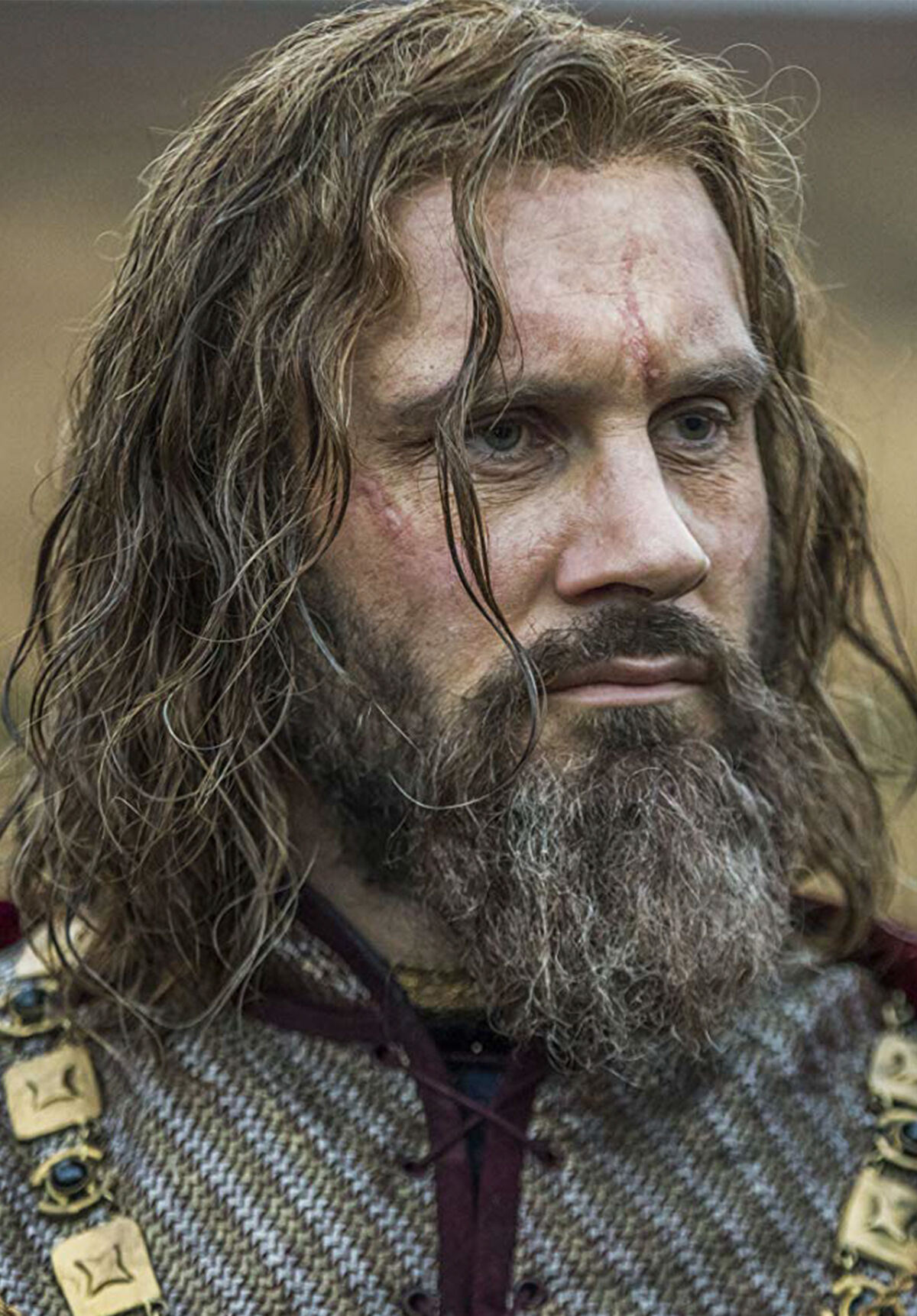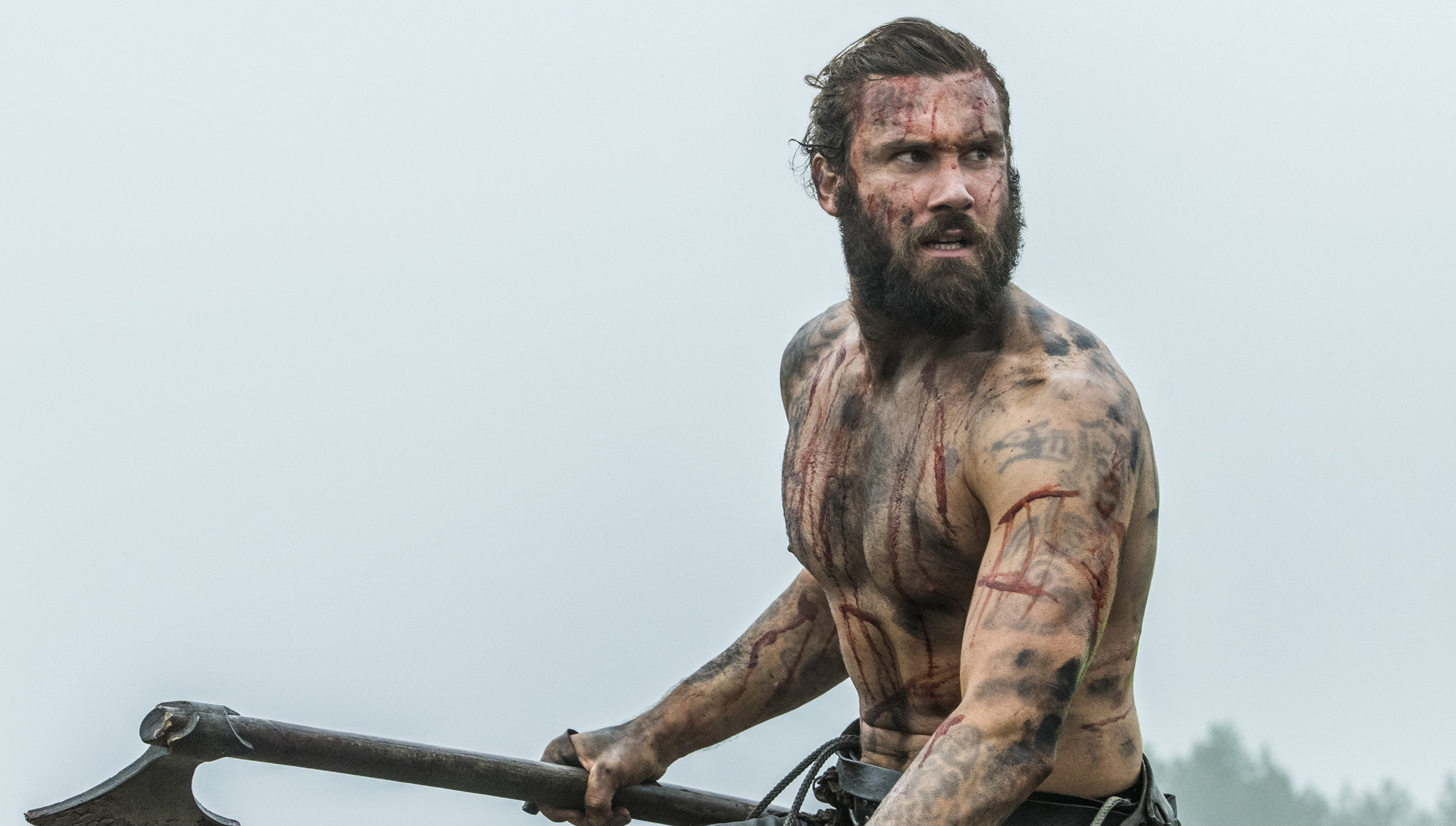The question of whether Rollo betrays Ragnar has long intrigued fans of the hit TV series "Vikings" and those familiar with Norse history. This complex relationship between two legendary Viking figures has sparked countless debates among historians and entertainment enthusiasts alike. The intricate web of loyalty, ambition, and family ties creates a compelling narrative that continues to captivate audiences worldwide. Understanding the dynamics of this relationship requires examining both historical accounts and modern interpretations of these iconic characters.
Ragnar Lothbrok, the legendary Viking warrior, and his brother Rollo share a bond that tests the limits of familial loyalty and personal ambition. Their story unfolds against the backdrop of Viking expansion, where personal glory often clashed with family obligations. As we delve deeper into their relationship, we'll explore how historical facts intertwine with dramatic storytelling to create one of history's most fascinating sibling dynamics.
This article will comprehensively examine the circumstances surrounding Rollo's actions and their impact on Ragnar's legacy. Through careful analysis of historical records and contemporary interpretations, we aim to provide readers with a clear understanding of whether Rollo truly betrayed Ragnar or if their relationship was more complex than it appears. Our exploration will cover various aspects, including historical context, character motivations, and the long-term consequences of their actions.
Read also:Aditi Mistry A Comprehensive Guide To Her Life Career And Achievements
Table of Contents
- Historical Context of Rollo and Ragnar
- In-Depth Character Analysis
- Key Moments of Alleged Betrayal
- Historical Evidence and Interpretations
- Rollo and Ragnar in the "Vikings" Series
- Understanding Rollo's Motivations
- Consequences of Rollo's Actions
- Family Dynamics and Loyalty
- Impact on Viking History
- Modern Interpretations and Cultural Significance
Historical Context of Rollo and Ragnar
The relationship between Rollo and Ragnar must be understood within the broader context of Viking expansion during the 9th century. Historical records indicate that both figures played crucial roles in the Norse exploration and settlement of new territories. Rollo, later known as the founder of Normandy, emerges in historical documents as a powerful Viking leader who established a significant foothold in what is now France.
During this period, Viking society operated under a complex system of loyalties and rivalries. While family ties were traditionally strong, personal ambition often took precedence in matters of conquest and settlement. The Norse tradition of seeking personal glory sometimes conflicted with familial obligations, creating situations where even close relatives might find themselves at odds over territories or power.
The historical context also reveals that Viking leaders frequently formed strategic alliances and broke them when necessary. This fluid approach to loyalty meant that what might appear as betrayal to modern eyes could have been considered a practical political decision in Viking society. Understanding these cultural nuances is essential when examining the relationship between Rollo and Ragnar.
In-Depth Character Analysis
Ragnar Lothbrok: The Legendary Warrior
Ragnar Lothbrok stands as one of history's most celebrated Viking warriors, known for his daring raids and strategic conquests. Historical accounts portray him as a visionary leader who sought to expand Viking influence beyond traditional boundaries. His military campaigns against England and France demonstrated both tactical brilliance and unwavering determination.
Ragnar's character embodies the quintessential Viking warrior ethos: a combination of bravery, ambition, and a deep connection to Norse traditions. Despite his martial prowess, historical records suggest he maintained a complex relationship with his family, particularly his brother Rollo. This relationship was marked by both mutual respect and intense rivalry, reflecting the broader dynamics of Viking society.
Modern interpretations of Ragnar often emphasize his role as a pioneer of Viking expansion. His legacy extends beyond military achievements to include the establishment of new Viking settlements and the integration of Norse culture with other European societies. This historical context helps explain why Rollo's actions would have had such significant implications for Ragnar's broader ambitions.
Read also:Ullu Web Series A Comprehensive Guide To Indias Bold Streaming Platform
Rollo: The Ambitious Brother
Rollo's historical significance lies in his transformation from a Viking raider to the founder of Normandy. Born into a prominent Viking family, Rollo demonstrated early ambition that sometimes put him at odds with his brother Ragnar. Historical records indicate that Rollo's decision to establish a permanent settlement in France marked a significant departure from traditional Viking practices of raiding and returning home.
Unlike Ragnar, whose focus remained primarily on raiding and conquest, Rollo showed a remarkable ability to adapt to new circumstances and forge lasting alliances. His decision to negotiate with Charles III of France, leading to the Treaty of Saint-Clair-sur-Epte in 911, demonstrated political acumen that sometimes conflicted with Viking warrior traditions. This strategic thinking often created tension with his more traditional brother.
The following table provides key information about Rollo's life and achievements:
| Attribute | Details |
|---|---|
| Name | Rollo (Hrólfr in Old Norse) |
| Birth | c. 846, Norway |
| Death | c. 930, Normandy |
| Notable Achievement | Founder of Normandy |
| Major Conflict | Siege of Paris (885-886) |
| Legacy | Ancestral grandfather of William the Conqueror |
Key Moments of Alleged Betrayal
Several historical events have been interpreted as moments of betrayal between Rollo and Ragnar. The most significant of these occurred during the Siege of Paris in 885-886, where Rollo's actions diverged markedly from traditional Viking strategies. While Ragnar favored direct confrontation and raiding tactics, Rollo demonstrated a willingness to negotiate and establish permanent settlements.
- 885-886: Rollo's decision to negotiate with Frankish authorities during the Siege of Paris
- 911: The Treaty of Saint-Clair-sur-Epte, where Rollo formally accepted Frankish lands in exchange for protection against other Viking raiders
- 918: Rollo's military campaigns that sometimes conflicted with traditional Viking interests
These moments, while not necessarily betrayals in the modern sense, represented significant departures from Viking warrior traditions that Ragnar held dear. Historical documents suggest that Rollo's actions were driven by practical considerations rather than personal animosity toward his brother.
Historical Evidence and Interpretations
Primary sources from the period provide valuable insights into the relationship between Rollo and Ragnar. The "Anglo-Saxon Chronicle" and "Frankish Annals" offer contemporary accounts of Viking activities, though they rarely mention specific family relationships. Modern historians have pieced together these accounts to form a more comprehensive picture of Viking dynamics.
Recent archaeological discoveries in both Scandinavia and Normandy have shed new light on Viking settlement patterns. Excavations at Jelling in Denmark and Rouen in France reveal distinct cultural influences that suggest a complex relationship between different Viking factions. These findings support the theory that Rollo's actions were part of a broader shift in Viking strategy rather than simple betrayal.
Notable historians such as Dr. Eleanor Parker from Oxford University and Professor Judith Jesch from the University of Nottingham have contributed significantly to our understanding of Viking relationships. Their research emphasizes the need to view historical events through the cultural lens of the period rather than applying modern moral judgments.
Rollo and Ragnar in the "Vikings" Series
The popular TV series "Vikings" takes creative liberties in portraying the relationship between Rollo and Ragnar. While the show captures the emotional intensity of their bond, it often dramatizes historical events for entertainment purposes. In the series, Rollo's betrayal is depicted as a personal vendetta rather than a strategic decision.
Key differences between historical accounts and the series include:
- Timeline: The show compresses events that occurred over decades into a shorter timeframe
- Motivations: Personal jealousy and rivalry are emphasized more than strategic considerations
- Consequences: The series portrays more immediate and dramatic repercussions than historical records suggest
While the series provides valuable cultural exposure to Viking history, viewers should understand that many dramatic elements are fictionalized for storytelling purposes.
Understanding Rollo's Motivations
Rollo's decisions can be better understood by examining the broader context of Viking society and personal ambition. Several factors influenced his actions:
- Political Opportunities: The chance to establish a permanent settlement and gain legitimate rule
- Strategic Positioning: Securing a base of operations in continental Europe
- Cultural Adaptation: Willingness to integrate with Frankish society for long-term stability
These motivations reflect a pragmatic approach to leadership that sometimes conflicted with traditional Viking values. Modern historical analysis suggests that Rollo's actions were driven more by practical considerations than personal animosity toward Ragnar.
Consequences of Rollo's Actions
The long-term impact of Rollo's decisions extended far beyond his immediate relationship with Ragnar. The establishment of Normandy created a powerful new political entity that would play a crucial role in European history. This development had several significant consequences:
- Cultural Integration: The blending of Norse and Frankish cultures in Normandy
- Political Stability: Reduced Viking raids in the region through legitimate settlement
- Historical Legacy: The Norman Conquest of England in 1066, led by Rollo's descendant William the Conqueror
While these consequences might have seemed like betrayal to contemporary Vikings, they ultimately contributed to the broader integration of Norse culture into European society.
Family Dynamics and Loyalty
The relationship between Rollo and Ragnar illustrates the complex nature of Viking family dynamics. Traditional Norse society valued both family loyalty and personal achievement, creating potential conflicts when these values clashed. Historical evidence suggests that Viking families often navigated these tensions through a combination of negotiation and strategic alliances.
Modern research indicates that Viking family structures were more flexible than previously thought. While blood ties remained important, practical considerations often took precedence in matters of leadership and settlement. This understanding helps explain why what might appear as betrayal could have been seen as necessary political maneuvering within Viking society.
Impact on Viking History
The actions of both Rollo and Ragnar significantly shaped the course of Viking expansion and integration into European society. Their different approaches to conquest and settlement represent two distinct paths in Viking history:
- Ragnar's Legacy: Pioneering Viking raids and establishing temporary settlements
- Rollo's Legacy: Creating permanent Norse settlements and integrating with local populations
- Combined Impact: Expansion of Norse influence across Europe through both raiding and settlement
These parallel developments demonstrate how Viking society evolved from traditional raiding practices to more sophisticated forms of political and cultural integration.
Modern Interpretations and Cultural Significance
Contemporary understanding of Rollo and Ragnar's relationship has evolved significantly through modern scholarship and popular culture. Recent academic research emphasizes the need to view historical figures within their cultural context rather than applying modern moral judgments. This approach has led to a more nuanced understanding of what constitutes betrayal in Viking society.
The cultural significance of their story extends beyond historical accuracy to influence modern discussions about leadership, loyalty, and ambition. Their relationship serves as a powerful example of how personal and political decisions can shape historical narratives. This enduring fascination demonstrates the continued relevance of Viking history in contemporary society.
Modern interpretations also highlight the importance of understanding historical context when evaluating

